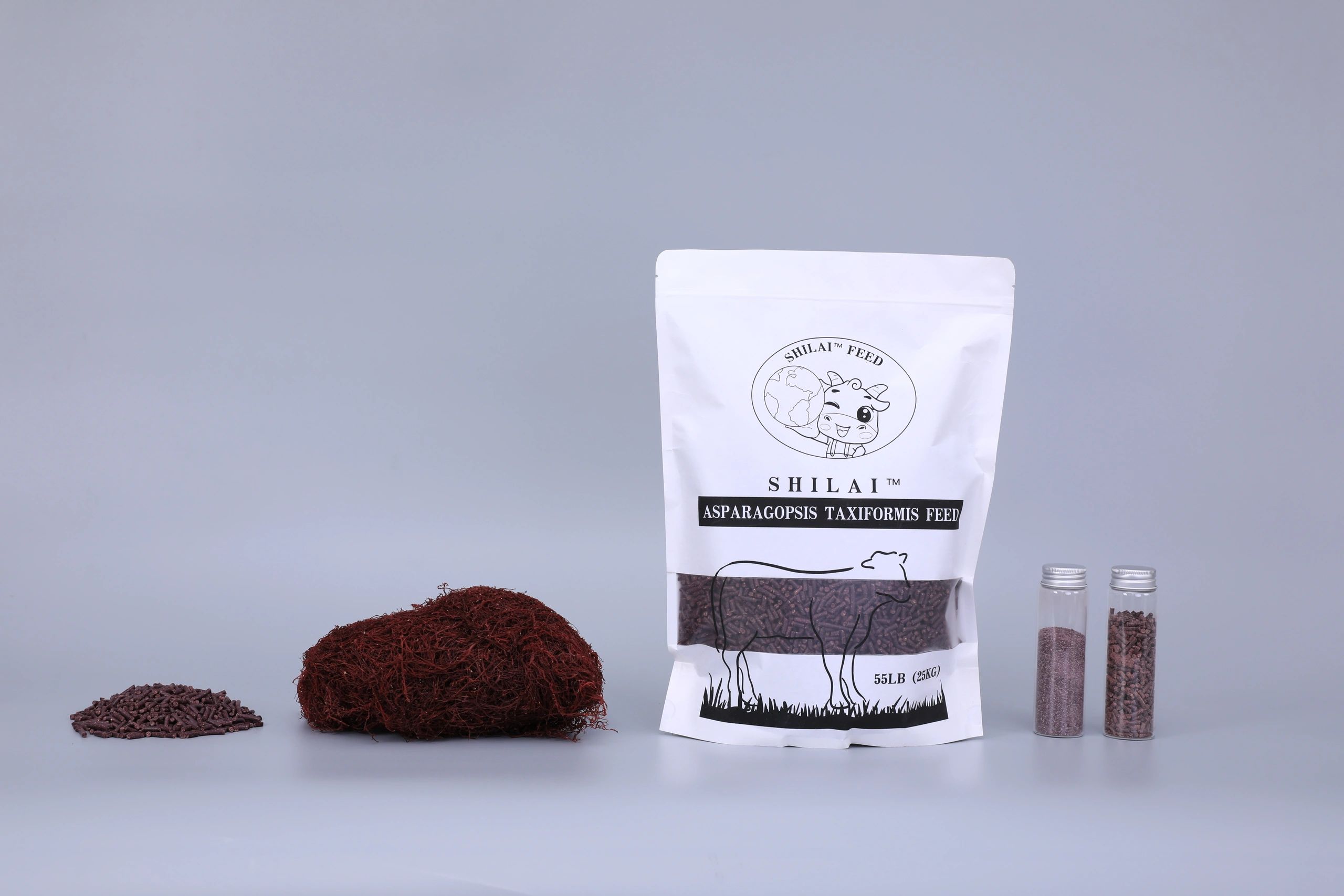The agriculture sector worldwide produces a notable share of greenhouse gases, mainly attributable to livestock production.
The climate impact of methane surpasses that of carbon dioxide on a per-molecule basis, underscoring the urgency to reduce it.
Asparagopsis taxiformis, a species of red seaweed, is being researched as a promising method to cut livestock methane emissions.
Contained within the alga is a bioactive molecule that suppresses methanogenesis in the rumen and reduces total methane emissions.
Including Asparagopsis taxiformis in livestock formulations has produced trial outcomes that support its potential as a real-world methane mitigation tool.
- Additionally, Asparagopsis taxiformis provides further value propositions alongside emissions reductions.
- Improved animal health and well-being
- Opportunities for economic growth in rural communities
Ongoing research and development are warranted, yet Asparagopsis taxiformis already shows compelling potential to lower agricultural emissions.
Exploring the Commercial Promise of Asparagopsis taxiformis Powder as a Feed Ingredient
The powder and extract forms of Asparagopsis taxiformis could deliver new nutritional and environmental value in feeds.
Asparagopsis’s nutrient and functional compound mix can support improved feed efficiency and animal output.
Formulating with A. taxiformis powder has lowered methane in studies and can provide additional vitamins and minerals to animals.
Sustained R&D is needed to finalize dosage regimes, processing protocols, and long-term performance and safety evidence.
How Asparagopsis taxiformis Could Reshape Sustainable Animal Agriculture
This red marine species is being highlighted for its capacity to reduce the ecological burden of routine livestock operations.
When included in animal diets, the seaweed’s methane reductions could materially shrink farm greenhouse gas footprints.
Research suggests the seaweed can additionally support better animal health and production performance under certain conditions.
Although long-term effects and large-scale feasibility still require study, initial outcomes are encouraging and worth further pursuit.
Asparagopsis-Based Feed Supplements for Methane Cuts
The seaweed has surfaced as a practical strategy to reduce enteric methane from cattle, sheep, and goats.
Active substances in the algae modify rumen microbial dynamics, thereby reducing methane production.
- Academic trials have recorded significant methane decreases for animals fed Asparagopsis under experimental conditions.
- Asparagopsis feed inclusion is recognized as a green approach to mitigating livestock methane.
- Producers and ranchers are beginning to consider piloting Asparagopsis in their feeding regimens.
Asparagopsis: Seaweed Fueling Sustainable Change in Animal Agriculture
A promising marine-derived solution has appeared, with Asparagopsis taxiformis capable of cutting methane in ruminants.
- Trials that fed Asparagopsis to livestock documented marked methane reductions, pointing to strong environmental upside.
- The technology points to reconciling productive agriculture with lower emissions and improved sustainability.
As decarbonization efforts accelerate, Asparagopsis represents a distinctive marine-based pathway to reduce agricultural methane.
Streamlining Asparagopsis taxiformis Feed Applications to Maximize Methane Benefits
Work is underway to determine optimal processing methods and inclusion rates to enhance A. taxiformis effectiveness.
The Science Behind Asparagopsis taxiformis's Methane-Lowering Effects

The scientific explanation centers on the seaweed’s bioactives inhibiting methanogenic archaea and thereby lowering methane output.
Bromoform and related halogenated compounds are thought to play a major role in disrupting methane production, with ongoing safety studies.
Incorporating Asparagopsis into Feed Recipes to Advance Sustainable Production
The combination of nutritive content and functional compounds makes Asparagopsis suitable for practical feed inclusion.
Formulating with Asparagopsis can enhance diets via added nutrients, better digestion, and possible reductions in pathogenic microbes.
Leveraging Asparagopsis taxiformis for Environmental Gains in Food Production
This red alga provides a promising, nature-inspired approach to lower the environmental cost of animal-based food production.
- Moreover, the species supplies nutrients that can enhance the dietary profile of feed formulations.
- Industry and academia are evaluating potential uses of the seaweed across food system and aquaculture contexts.
Embedding the seaweed in feed strategies could help diminish the overall environmental impact of farming operations.
Enhancing Animal Health and Productivity with Asparagopsis Feed Additives
The seaweed presents a promising feed additive option with potential co-benefits for emissions and animal performance.
Use in diets has been associated with improved nutrient absorption and feed conversion, which can support weight gain and overall condition.
Asparagopsis contains compounds with antioxidant and immune-modulating potential that may enhance resilience and reduce disease incidence.
With demand for greener livestock increasing, Asparagopsis stands out as a promising option as R&D and industry adoption progress.
A Sustainable Trajectory: Methane-Cut Feeds Based on Asparagopsis
As the agricultural sector seeks pathways to emissions reduction, Asparagopsis stands out as an implementable methane mitigation measure.
- Experts propose that active compounds in the algae block key microbial pathways that produce methane in the rumen.
- Multiple trials have reported encouraging outcomes, with pronounced methane declines in animals fed Asparagopsis.
This feed innovation could help shift food production toward lower emissions and greater climate resilience.
